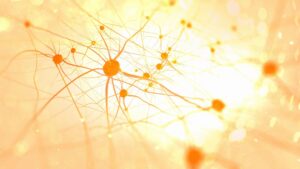
The Fading Affect Bias in Pursuit of the Pleasant Life
Fading Affect Bias (FAB)
The Fading Affect Bias, or FAB for short, refers to the cognitive phenomenon supported by research showing that memories associated with negative emotions tend to fade faster than memories associated with positive emotions (Skowronski, 2014). This means we tend to forget the bad times at a faster rate than the good times.
Research also suggests that negative events will eventually move toward positive memories more than positive events will move toward the negative (Skowronski, 2014). In other words, as negative memories fade, events appear more positive and positive emotions expand relative to negative emotions.
At first thought, these seem to be a really good things, and they can be as I'll discuss shortly. But first, as we talked about in the article, Learning to Be Optimistic, pessimism is part of our survival instinct and remembering past dangers helps us avoid them in the future. Imagine if we were to lose all of our negative emotions or our memories related to negative events? We would certainly be fated to repeat those events.
Consider relationships. Many have applied FAB to dating and break-ups, suggesting that negative memories will fade more quickly over time, leaving more positive memories of the relationship. Many couples suddenly remember those negative aspects of the relationship shortly after getting back together.
The same is true for other relationships. A good friend and colleague of mine quit her job to take another position but asked to return after six-months. The position was still open and while she was an outstanding employee, she was not rehired out of fear she would quickly remember why she quit and would resign her position again.
Time Heals All Wounds
 When I think of the positive aspects of FAB, my first thought is the common, and perhaps overly used phrase, 'time heals all wounds.' To me, this describes the Fading Affect Bias perfectly. As time moves forward, our memories and emotions associated with negative events begin to fade. In fact, Gibbons et al. (2011) found that our negative memories and associated emotions begin to fade within 12 hours. Could this be our psyche's built in healing process?
When I think of the positive aspects of FAB, my first thought is the common, and perhaps overly used phrase, 'time heals all wounds.' To me, this describes the Fading Affect Bias perfectly. As time moves forward, our memories and emotions associated with negative events begin to fade. In fact, Gibbons et al. (2011) found that our negative memories and associated emotions begin to fade within 12 hours. Could this be our psyche's built in healing process?
According to Walker, et al. (2003), life is pleasant and the Fading Affect Bias helps keep it that way. The Fading Affect Bias may be reduced or even eliminated in people suffering from some mental health issues. In recent research, individuals who self-reported symptoms of eating disorders showed a diminished or absent FAB, reducing or eliminating the power of positive emotions (Ritchie, et al., 2019). Walker et al. (2003) argue that "mildly depressed people may perceive their lives to be more negative than the lives of others" (p. 203), and therefore may show a diminished or possibly even revered FAB. Absent these issues, our autobiographical memory is most often biased in favor of the positive (Walker et al., 2003), helping us maintain our pleasant lives.
Ignorance is Bliss
 Sigmund Freud was the first to discuss defense mechanisms - aspects of the psyche that help us maintain a healthy ego. His included denial, repression, and projection, among others (AllPsych.com - Freud's Ego Defense Mechanisms). Denial allows us to escape the negative emotions associated with a negative event by refusing to accept the event, or at least the bad parts. Repression allows us to bury negative memories in our unconscious, essentially forgetting them altogether. Projection allows us to push onto others our own negative emotions. All of these defense mechanisms distort reality in a positive way by minimizing the negative. They bring to mind the cliché, 'Ignorance is Bliss.'
Sigmund Freud was the first to discuss defense mechanisms - aspects of the psyche that help us maintain a healthy ego. His included denial, repression, and projection, among others (AllPsych.com - Freud's Ego Defense Mechanisms). Denial allows us to escape the negative emotions associated with a negative event by refusing to accept the event, or at least the bad parts. Repression allows us to bury negative memories in our unconscious, essentially forgetting them altogether. Projection allows us to push onto others our own negative emotions. All of these defense mechanisms distort reality in a positive way by minimizing the negative. They bring to mind the cliché, 'Ignorance is Bliss.'
The Fading Affect Bias seems to fit this cliché well. Could FAB be considered a defense mechanism - a built in aspect of our psyche that helps maintain balance? Or maybe it merely explains the outcome of our defense mechanisms. FAB, like Freud's defense mechanisms, is built into our psyche and serves to maintain the pleasant life.
The Pleasant Life
Seligman speaks a lot about the importance of the Pleasant Life. It is one of three different happy lives and involves as much positive emotion as possible. The second is The Good Life focused on engagement and Flow (See Flow: A State of Full Engagement) and building on strengths. The third happy life Seligman calls the Meaningful Life, focused on using your highest strengths in service of something greater than the self. Seligman (2004) provides an overview of positive psychology in the following Ted Talk video (skip to 9:00 to jump directly to his discussion of the three happy lives).
Considering our natural tendency toward pessimism as part of our survival instinct (See A Negative Beginning to Positive Psychology: Part 2), FAB presents an uncommon bonus in our work to improve our well-being. It is a modern day defense mechanism that allows us to minimize the impact of negative life events by more quickly fading out negative emotions and negative memories. This increases the ratio of positive emotions leaving us with more pleasant memories of past negative events.
Fredrickson and Losada (2005) refers to the Positivity Ratio and argue that the power of positive emotions needs to be at least three times that of negative emotions for us to flourish. While this specific 3:1 ratio has not gained widespread acceptance, the power of positive emotions is well supported in the research. The Positivity Ratio explains the importance of FAB in maximizing ye ratio of positive emotions in pursuit of the Pleasant Life.
But even Freud believed that defense mechanisms could be overused. Finding a healthy balance between positive memories that promote happiness and negative memories that help avoid past dangers is key. It is not always an easy task but it is this important balance that promotes the Pleasant Life.
References
AllPsych.com (n.d.). Freud's ego defense mechanisms. Retrieved from https://allpsych.com/psychology101/personality/defenses/.
Fredrickson, B. L. & Losada, M. F. (2005). Positive affect and the complex dynamics of himan flourishing. American Psychologist, 60, 678-686.
Gibbons, J.A., Lee, S. A., & Walker, W. R. (2011). The fading affect bias begins within 12 hours and persists for 3 months. Applied Cognitive Psychology. 25(4), 663-672.
Ritchie, T. D, Kitsch, K, & Skowronski, J. J. (2019). Individuals who report eating disorder symptoms also exhibit a disrupted fading affect bias in autobiographical memory. Memory, 27(2)
Seligman, M. (2004). The new era of positive psychology. Ted Talk video. Retrieved from https://www.ted.com/talks/martin_seligman_the_new_era_of_positive_psychology?language=en#t-541427.
Skowronski, J. J., Walker, W. R., Henderson, D. X., & Bond, G. D. (2014). Chapter three - The Fading Affect Bias: Its history, its implications, and its future. Advances in Experimental Social Psychology, 49, 163-218.
Walker, W. R., Skowronski, J. J., & Thompson, C. P (2003), Life is pleasant - and memory helps to keep it that way. Review of General Psychology, 7(2), 203-210.
